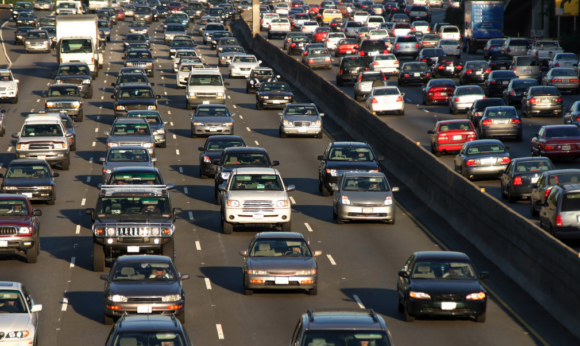Severe and fatal vehicle crashes occur at a higher rate in the Permian Basin than the rest of Texas, a new report released by the Texas A&M Transportation Institute found.
Commissioned by the Permian Road Safety Coalition, the report analyzed data from 2018 through 2022 and focuses on the 20 counties in West Texas and two in New Mexico that constitute the Permian Basin.
This is the organization’s first attempt at quantifying vehicle crashes occurring on the congested roads of the Permian Basin, a sprawling region that shoulders both the rush of the energy industry and everyday traffic.
The Midland-based nonprofit hopes the report will spur solutions to make the region’s roads safer.
The difference between the rate of severe and fatal crashes in West Texas compared to the rest of the state is striking. Nearly 15 crashes per 1,000 resulted in at least one death in the Permian Basin. During the same time period, the statewide average for the same type of crashes was seven per 1,000.
Put another way, crashes were twice as likely to be fatal in the Permian Basin than in the rest of Texas. More than half of the incidents involved multiple vehicles, with the rate of fatalities of multi-vehicle collisions being three times higher.
The report tracked 962 crashes in the Permian that resulted in at least one death during the five-year period. That’s about one fatal crash every other day. Nearly half of those accidents happened within Midland and Ector counties, the two most populated in the region. A combined 329,000 people live in those counties, which include the cities of Midland and Odessa.
Robert Wunderlich, the report’s lead author and director of the institute, said the traffic density measured by the number of vehicles and speed limits are similar to other urban areas in the state. However, the road design in the Permian is rural. Instead of the three- or four-lane interstates in Dallas or Houston, highways cutting through the Permian are often just single lanes.
“The Permian Basin is sparsely populated but heavily traveled,” Wunderlich said. “We’ve got a rural environment with fairly high-speed traffic. We see the kinds of crashes that we see in urban areas.”
Commercial motor vehicles used to transport property or a delivery accounted for almost half of the fatal rural crashes in the Permian Basin. That’s twice the statewide rate.
Michael Smith, the nonprofit’s managing director, said the study confirmed what residents of the Permian Basin have long known about the driving conditions. He hopes the report will enable advocates and policymakers pushing for safer driving behaviors to develop solutions. He said increased seat belt use, reducing vehicle speed, eliminating distractions and upgrading road infrastructure are top of mind.
Additionally, Smith said, the study will help law enforcement officials target “hot spots and historically problematic areas” in the region.
“It is possible to get to zero fatalities on the roadways of the Permian Basin,” Smith said.
The report did not surprise Paul Rhoades, a lifelong resident of West Texas who now lives in Midland with his wife. The retired trucker spent the better part of 16 years in the oil fields.
Rhoades said he’d seen everything on the road, from reckless drivers racing past his 18-wheeler to inexperienced drivers working under the pressure of hauling oil field property within strict time constraints. The roads can be so dangerous, he said, he has begged his wife to avoid driving if she could.
He hopes the report will inspire law enforcement to enforce speed limits and local officials to fix the roads.
“Everybody is in too damn of a hurry,” Rhoades, 55, said. “There is no courtesy out here, everyone is trying to get somewhere faster than the first person.”
Disclosure: Texas A&M Transportation Institute has been a financial supporter of The Texas Tribune, a nonprofit, nonpartisan news organization that is funded in part by donations from members, foundations and corporate sponsors. Financial supporters play no role in the Tribune’s journalism. Find a complete list of them here.
This article originally appeared in The Texas Tribune at https://www.texastribune.org/2024/02/14/west-texas-fatal-car-accidents/.
The Texas Tribune is a member-supported, nonpartisan newsroom informing and engaging Texans on state politics and policy. Learn more at texastribune.org.
Was this article valuable?
Here are more articles you may enjoy.


 Tesla’s Austin Robotaxis Report 14 Crashes in First Eight Months
Tesla’s Austin Robotaxis Report 14 Crashes in First Eight Months  Explosive Wildfires Surge Through Oklahoma Panhandle and Kansas
Explosive Wildfires Surge Through Oklahoma Panhandle and Kansas  AI Claim Assistant Now Taking Auto Damage Claims Calls at Travelers
AI Claim Assistant Now Taking Auto Damage Claims Calls at Travelers  Bayer to Make $10.5 Billion Push to Settle Roundup Cases
Bayer to Make $10.5 Billion Push to Settle Roundup Cases 